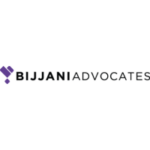-
What are the typical ownership structures for project companies in your jurisdiction? Does this vary based on the industry sector?
Typically, a private limited company will be established for the sole purpose of carrying out a specific project, and the ownership structure (foreign shareholders to Thai shareholders) will vary based on the business activities to be carried out by the project company and the applicable legal and regulatory framework.
In this regard, a company registered in Thailand is considered foreign under the Foreign Business Act B.E. 2542 (1999), as amended (“FBA”), if at least half of its shares are held by non-Thai natural or juristic persons. Such a company is restricted from operating certain businesses without a foreign business license (“FBL”) or a foreign business certificate (“FBC”).
It should be noted that “service business,” which is broadly interpreted as an activity that involves the performance of any valuable action, deed or effort to satisfy a requirement or fulfil a demand or the sale of intangible products (e.g. time, energy or expertise) for the benefit of customers, falls within the scope of restricted activities under the FBA and therefore require an FBL or FBC before commencement of the business operations.
In general, approval for an FBL is not readily granted unless the authorities are convinced that granting approval will benefit the country’s economy. The FBL application process is time-consuming and requires extensive information. In our experience the preparation of the FBL application and supporting documents can take up to eight weeks because of onerous disclosure requirements, and the FBL application process itself can take up to six months.
Foreign companies under the FBA are also prohibited from owning land in Thailand unless permitted otherwise by a specific investment incentive scheme according to applicable laws.
-
Are there are any corporate governance laws or accounting practices that foreign investors in a project company should be aware of?
Limited companies are required by law to conform its conduct to the general principles of corporate laws (e.g., principle of good faith with the objectives of the entity, duty to act to the best interest of the shareholders, separate legal personality of the corporation and delegated management).
As for specific accounting requirements, companies are required to maintain accounting records and file audited financial statements with the Ministry of Commerce annually.
Currently, the accounting and financial reporting standards used in Thailand are the Thai Financial Reporting Standards which were developed and materially based upon the principles of the International Financial Reporting Standards.
-
If applicable, what forms of credit support from sponsors or host governments are typically provided?
Corporate project sponsors will normally be required by the lenders to provide credit support to the project company in case of cost overrun and cash deficiency in the form of a capital increase or subordinated loan to the project company.
General credit support from the government is rarely provided, while subsidies from the government are sometimes given in public-private partnership projects for specific trigger events, such as termination of a project due to a reason not attributable to the project company or the private investors. The government will consider the possibility, types, and extent of support in relation to each project on a case-by-case basis.
-
What types of security interests are available (and suitable) for a project financing in your jurisdiction?
Currently, pledges, mortgages and business security are the only valid security interests recognized by Thai law.
Other contractual arrangements may be made by the parties as quasi-security, such as assignment of rights and guarantee. These arrangements are contractually enforceable between the parties, but they will not create any priority over other unsecured creditors under Thai law. Debts that are secured by contractual security arrangements will be treated as unsecured debts.
Combinations of the recognized security interests and quasi-security are typically employed to encumber the project assets in favour of the project lenders as much as possible.
-
How are the above security interests perfected?
Recognized security interests:
Pledge
Pledges can be created over moveable property. To create a valid pledge, physical delivery of the pledged property to the pledgee is required. Shares can be pledged by delivering the share certificates to the pledgee and recording the pledge in a registry book maintained by the company. However, for listed shares, the share certificates do not need to be physically delivered. Rather, a pledge can be created through the book-entry system maintained by the Thailand Securities Depository Company Limited, the registrar for shares listed on the Stock Exchange of Thailand.
Pledges are automatically discharged when the pledged property is physically returned to the pledgor.
Mortgage
A mortgage can be created over immovable property (such as land and buildings) and certain types of movable property such as machinery, ships or vessels weighing at least five tons, floating houses or rafts and beasts of burden (such as elephants, horses, and buffaloes).
To create a mortgage, it is necessary to execute a mortgage agreement in an official form and register it with the competent officers (such as the Land Office in the case of a land mortgage). The parties may add their own terms and conditions by way of a supplemental agreement. The mortgage agreement and its supplement must be executed before an official at the competent office when they are presented for registration.
Business security
A business security can be created over several types of assets (e.g. enterprise as a whole, changing pool of assets used in the operation of a business as well as intellectual properties, inventory, and receivables) without requirement for physical delivery. This means that the security provider can continue to use the assets subject to business security in its business operation.
To create a business security, parties must register a written business security agreement with the Ministry of Commerce via an electronic registration system. The business security agreement must also contain certain prescribed terms.
At present, entities that are eligible to take business security as secured creditor must be financial institutions within the meaning of the Financial Institution Business Act B.E. 2551 (2008) or those prescribed in ministerial regulations, which includes operators of financing and securities businesses established in Thailand, such as securities companies, asset management companies, factoring companies, and leasing companies. This effectively means that offshore banks without a banking license in Thailand are not permitted to take business security in its favour. Currently, the only scenario that allows for an offshore entity to hold a business security is when a foreign commercial bank provides a loan in syndication with a Thai financial institution.
Other contractual security arrangements:
Guarantee
To create a valid and enforceable guarantee, a guarantee agreement must be made in writing and signed by a guarantor. The guarantee agreement must also contain certain prescribed terms and conditions to be treated as a guarantee under Thai law. After a guarantor has made a payment pursuant to the guarantee, the creditor’s right of claim will be subrogated to it and it will be entitled to recover from the debtor for the amount paid.
Assignment
To create an assignment of right, a written agreement between the assignor and the assignee must be made and a written notification of the assignment must be delivered to the original debtor of the underlying contract (under which the assignor’s right has been assigned). The perfection of an assignment of obligation (i.e., novation) also requires written consent from the original debtor.
Although taking assignments of rights as part of a security package would not create any priority in favour of an assignee, lenders in the Thai market can take comfort in the legal principle that if the assignment is absolute (i.e., unconditional), the assigned right would become the asset of the assignee. Therefore, in the event of bankruptcy of the assignor, it will not form part of the assignor’s bankruptcy estate unless it can be established that the assignment has given undue preference or is fraudulent.
-
Please identify how security is enforced (notably the enforcement options available for secured parties) both pre and post insolvency/bankruptcy of the project company?
I. Pre-insolvency
Security can be enforced upon a breach of the underlying obligation that it secures, subject to contractual terms and conditions. The enforcement requirements differ depending on the type of security, as set out below.
Recognized security interests:
Pledge
A pledge may be enforced out of court. To enforce a pledge, a written demand notice must be given to the debtor requiring it to perform its obligations within a reasonable time. If the debtor fails to comply, the pledgee is entitled to enforce the pledged property by public auction sale. The pledgee must also notify the pledgor of the place and time of the public auction sale.
Mortgage
A mortgage can only be enforced in court. To enforce a mortgage, a written demand notice must be given to the debtor requiring the debtor to perform its obligations within a timeframe stated in the notice, which must be at least 60 days from the receipt of the creditor’s written demand notice. If there is a third-party mortgagor, the creditor must also deliver a demand notice to the third-party mortgagor within 15 days after the date of its demand notice to the debtor. If the creditor fails to serve the third-party mortgagor with this demand notice within the 15-day period, the third-party mortgagor will be automatically relieved from any liability for all interest and charges arising after that 15-day period.
Business security
A business security may be enforced out of court upon the occurrence of an enforcement event specified in the business security agreement and its registration particulars.
For business security over assets, the business security holder can choose to either foreclose or sell the secured assets by public auction by serving an enforcement notice to the security provider. After the notice is served, the security provider is required to surrender the secured assets to the business security holder.
Enforcement in court would, however, be required if the security provider refused to surrender the secured assets to the business security holder.
For business security over an enterprise, enforcement must be made through a licensed security enforcer.
Other contractual security arrangements:
Guarantee
To enforce a guarantee, the creditor must serve a written demand notice to the guarantor within 60 days of the debtor’s default. Failure to observe will relieve the guarantor from any liability in relation to all interest, compensation and related charges arising after that 60-day period.
Following default by the debtor, the guarantor also has the option of either performing the guaranteed obligation in its entirety or performing the debtor’s obligations pursuant to the terms and conditions of the underlying contract between the debtor and the creditor prior to the default. In this scenario, the creditor is not allowed to charge default interest while the guarantor is duly performing its exercised option.
Assignment
To enforce an assignment of rights, the assignee may give a demand notice to the underlying contract counterparty stating its intention to enforce the assigned rights as creditor for the performance of the obligations corresponding to the assigned rights.
II. Post-insolvency
A secured creditor (holder of pledge, mortgage, or business security) may enforce the security interest (pledge, mortgage, or business security) over the assets of the project company without having to first apply for debt repayment in bankruptcy proceedings, but the secured creditor must allow the official receiver to examine such secured assets.
A secured creditor may also apply for debt repayment in bankruptcy proceedings in the following cases:
- If the secured creditor agrees to relinquish the property given as security for the benefit of all creditors, it may apply for debt repayment in full;
- If enforcement has been made against the property given as security but the enforcement proceeds could not fully settle the debts, it may apply for debt repayment in respect of the outstanding amount;
- If a request has been made to the receiver for auction sale of the property given as security, it may apply for debt repayment in respect of the outstanding amount; and
- If valuation of the property given as security has been made, it may apply for debt repayment in respect of the outstanding amount.
As an additional note, Thai bankruptcy courts have the authority to nullify any transaction considered to be fraudulent or an act of undue preference in bankruptcy proceedings. While a third party who has given fair value for entering into such a transaction and was not aware of potential prejudice to other creditors will be legally protected, Thai bankruptcy law would presume that the creditor receiving assets or security from a debtor during the one-year period before commencement of bankruptcy proceedings is aware of prejudice to other creditors from the action and therefore is exposed to this clawback risk.
-
What are other important considerations in relation to the security regime in the jurisdiction that secured parties should be aware of?
As previously discussed, foreign parties are not permitted to take business security in their favour, except for foreign commercial banks providing a loan in syndication with a Thai financial institution.
-
What key project risks should lenders be aware of in project financings in your jurisdiction? This may include, but may not be limited to, the following risks: force majeure, political risk, currency convertibility risk, regulating or permitting risk, construction/completion risk, supply or feed stock risk or legal and regulatory risk).
We do not see any major risk that would be country-specific for Thailand other than common bankability considerations that would similarly apply to project financing transactions internationally.
When supervisory government agents or state enterprises grant concession and power purchase agreement quotas, it is done mostly through a government model agreement, which would not be as robust as offshore lenders may have seen internationally and sometimes provides limited to no room for negotiation. This could be a significant deterrence for offshore lenders who are not very familiar with the Thai market. Nevertheless, we still would not consider this issue as a major risk given that many projects have been financed on this basis by many onshore and offshore lenders alike and the operational practice of those model agreements as well as the credibility of the Thai government has been consistently established enough for the offshore lenders who have some familiarity with the market to accept this country risk.
-
Are any governmental / regulatory consents required and are any financing or project documents requirement to be filed with any authority in order to be admissible in evidence in a court of law, valid or enforceable?
Generally, no governmental consent, regulatory consent, approval, registration or notarization is required for financing documents and project documents to become valid and enforceable, except for:
- Business security registration through the Ministry of Commerce’s online platform;
- Land ownership transfer registration (from sale and purchase) at the competent Land Office;
- Lease registration with the competent Land Office for lease of immovable property with a lease period of more than three years; and
- Mortgage registration with the competent officer.
However, stamp duty is required for certain documents, such as power of attorney documentation, loan agreements, and service agreements, to become admissible as evidence in court proceedings.
-
Are there are any specific foreign exchange, royalties, export restrictions, subsidies, foreign investment, that are relevant for project financings (particularly in the natural resources sectors)?
Foreign exchange control: The Bank of Thailand (“BOT”) regulates the transfer of money into and out of Thailand and manages exchange rates in Thailand. There is no restriction on the money to be brought into Thailand; however, there are certain restrictions on the transfer of money out of Thailand. The amount to be transferred must be within the limitations for each type of transaction, as prescribed by the BOT. Exchange control approval from the BOT or an authorized agent of the BOT (e.g., commercial bank licenses to operate in Thailand) in respect of each fund transfer out of Thailand which must be obtained at the time of and for each transfer. Transfer of money offshore for repayment of a loan principal and accrued interest typically requires evidence of the underlying obligations and records of the loan being brought into Thailand. Granting of approval for offshore fund transfer is discretionary, but approval is routinely given for transactions that have reasonable grounds and are supported by documentary evidence.
Royalties and taxes: Concessions granted to the private sector for natural resource exploration and extraction are generally subject to special taxes and royalties. For example, under Thai petroleum law, concessionaires must pay royalties based on revenue and the quantity of petroleum sold in each month. Concessionaires are exempt from income tax under Thai general tax law; however, they are subject to a special annual income tax calculated based on their net profit from petroleum business. Both local and foreign entities are subject to the same taxes and royalty rules.
Export restrictions: Under Thai law, the exportation of certain natural resources, such as gold and any radioactive mineral, is prohibited unless there is approval from the relevant competent authority. Thailand also complies with UN sanctions and export restrictions. Export of natural resources may be subject to customs duty and value-added tax.
Foreign investment: Business activities having an impact on natural resources or the environment, such as mining (including rock blasting or rock crushing) and timber processing for production of furniture and appliances, are reserved for Thai individuals entities under List 2 of the FBA and can be operated by foreign parties with permission from the Minister of Commerce and the approval of the Cabinet. However, a foreigner may be exempted from obtaining such permission and approval by virtue of a treaty to which Thailand is a party or by which Thailand is bound.
-
Please set out any specific environmental, social and governance issues that are relevant. For example, are project companies subject to certain ESG laws, reporting requirements or regulations?
Thailand has made significant progress in developing an ESG framework and guidelines for businesses and activities impacting climate change. In 2024, advancements included stricter ESG disclosure regulations, policy initiatives integrating ESG into economic instruments, and private sector collaboration to promote a sustainable economy.
Key developments include the Thailand Taxonomy, a voluntary reference for assessing environmentally sustainable activities, and a carbon offset market platform managed by the Thailand Greenhouse Gas Management Organization. These tools encourage sustainability but are not mandatory.
The BOT has introduced operational standards for financial institutions, emphasizing lending practices, governance, and ESG-aligned disclosures. The guidelines on such standards were updated by the BOT in 2023 encouraging sustainable governance, science-based financing, and the involvement of experts to mitigate greenwashing risks, and compliance to such guidelines has now been monitored by the BOT. Additionally, responsible lending guidelines have also been implemented by the BOT aiming to address household credit challenges and promote sound credit practices.
Efforts by the BOT, the Securities and Exchange Commission, and the Stock Exchange of Thailand (“SET”) to promote green financing have spurred financial institutions’s interest in sustainable financial products, such as green bonds, loans, and sustainability-linked instruments. However, as these products often require detailed reports, action plans, and ESG ratings, it poses challenges for smaller businesses with limited resources. It also imposes the obligation to listed companies to disclose true and accurate sustainability management policies, with penalties for false reporting, while other ESG initiatives remain voluntary. Such challenges and obligations have led to the introduction of greenwashing strategy by some companies.
To mitigate the greenwashing risks, the SET has raised awareness and promoted transparency by urging businesses to balance clear and accurate ESG disclosures without exaggerating claims. Meanwhile, investors are urged to perform due diligence to verify companies’ ESG commitments and support genuine sustainable practices.
These initiatives highlight Thailand’s commitment to fostering sustainable finance and aligning corporate practices with ESG principles. However, challenges such as resource limitations and greenwashing risks remain, requiring continued vigilance from all stakeholders.
Regulators are adopting a more proactive approach to addressing legal violations, particularly those involving listed companies that impact the broader public interest. This increased scrutiny makes non-compliance more likely to be detected and acted upon, leading to a rise in legal proceedings. Regulatory bodies may issue accusations, impose penalties, and enforce sanctions on companies failing to meet compliance requirements. As a result, businesses face growing pressure to ensure strict adherence to regulatory standards.
-
Has any public-private partnership models or laws been enacted in the jurisdiction, and if so, are they specific to certain industry sectors?
Public-private partnerships and co-investment with a governmental agency (including undertaking of a project that is the duty of governmental agency) are regulated by the Public-Private Partnership Act B.E. 2562 (2019), which applies to the specified infrastructure and public services such as transportation (e.g., roads, highways, railways, airports, and ports); water management; energy infrastructure; telecommunications; hospitals; schools; residences or facilities for low-income or middle-income people, the elderly, underprivileged people or people with disabilities; exhibition centres and conference centres; and any other undertaking that may be prescribed by royal decree. Competitive bidding and Cabinet approval are generally required in the private investor selection procedures.
The main focus of the Thai government in relation to project development previously and in recent years has been on the transportation sector, particularly, mass transit system and highways. This is likely to continue in the future with some of the social infrastructure projects in the water management, healthcare, education, and housing sector (such as Department of Medical Services’ medical complex and the Din Daeng community urban rehabilitation project).
-
Will foreign judgments, arbitration awards and contractual agreements to arbitrate be upheld?
Enforcement of foreign judgments: Currently, Thailand is not a party to any treaty, convention, or international agreement on the recognition and enforcement of foreign judgments. A final judgment obtained in any foreign court, therefore, may not be directly enforced as a judgment in Thailand by the Thai courts, but may, at the discretion of the Thai courts and subject to the rules of evidence in the Thai Civil Procedure Code, be admissible as evidence in legal proceedings in Thailand. A Thai court may retry the entire case on its merits. If proceedings are brought in Thailand, the Thai courts would apply the procedural laws of Thailand for procedural matters.
Enforcement of arbitral awards: A foreign arbitral award will be recognized and enforced in Thailand only if the award is covered by a treaty, convention, or international agreement to which Thailand is a party, and it will have effect only as far as Thailand accedes to be bound. Thailand has acceded to the New York Convention on the Recognition and Enforcement of Foreign Arbitral Awards (“New York Convention”), and is also a party to the Geneva Convention on the Enforcement of Foreign Arbitral Awards 1927 (“Geneva Convention”). Therefore, foreign arbitration awards rendered in countries that are signatories to the New York Convention or the Geneva Convention are recognized and enforceable in Thailand, subject to the exceptions indicated above. To enforce a foreign arbitral award, a Thai court judgment must be obtained. Accordingly, a petition for enforcement of an award must be filed with the Thai court within three years from the date the award became enforceable. Thai courts generally will not review the merit of the case. However, the Thai courts may refuse to enforce an award or dismiss the filing for enforcement of the arbitral award on certain limited grounds. From precedents, with the exception of arguments concerning public order or good morals, other grounds are mostly “due process” defences.
Contractual agreement to arbitrate: Thai laws recognize arbitration agreements and arbitration built-into a main agreement to the extent that they comply with the Thai Arbitration Act B.E. 2545 (2002). Thailand’s Supreme Court has also upheld that if the parties have agreed to settle their dispute by arbitration, they may not request the court to consider or settle their dispute without following through with the arbitral proceedings.
-
Is submission to a foreign jurisdiction and waiver of immunity effective and enforceable?
Submission to foreign jurisdiction: Thai law is silent on the issue of choice of forum, and accordingly there is currently no basis under Thai law for submission to the jurisdiction of a court or any authority outside of Thailand. Therefore, the validity and binding effect of submission by the parties to an agreement to the exclusive or non-exclusive jurisdiction of a foreign court is, under Thai law, uncertain at present.
Waiver of immunity: A general immunity rule under Thai law that state property cannot be subject to enforcement. In our experience, waiving of this immunity by a governmental agency is still unprecedented and its enforceability is untested.
-
Please identify what you consider to be (a) the key current issues for project financing in your jurisdiction; and (b) any emerging trends or topics which should be considered or focused on by project financing stakeholders.
The current government under prime minister Paetongtarn Shinawatra is attempting to position Thailand as a regional digital technology and artificial intelligence (AI) hub and looks to strengthen an ecosystem and infrastructure to promote AI and digital innovation development. However, given Thailand’s dynamic political landscape, voters and investors’ confidence will have significant impact in influencing continuity of the policy and future projects going forward.
With climate change being the focus of Thailand’s current National Plan for Economic and Social Development (2023–2027) and the intention of the Thai government to reduce the country’s reliance on fossil fuel, renewable energy projects such as wind and solar have seen an increase in power purchase quotas in recent years after a long pause. In relation to public projects, public-private partnership remains the main scheme that the Thai government employs for infrastructure financing, and the Thai government’s main focus is on mass transit system and highways projects, and potentially on the land bridge project connecting the Andaman Sea to the Gulf of Thailand in the southern part of Thailand.
-
Please identify in your jurisdiction what key legislation or regulations have been implemented (or will / plan to be) for projects in connection with the energy transition?
To achieve lower greenhouse gas emission in line with Thailand’s National Plan for Economic and Social Development (2023–2027), the Thai government has rolled out measures to promote business activities and plans for legislation and measures to enforce a more stringent standard of environmental regulations.
New regulatory frameworks, particularly the draft Clean Air Act and Climate Change Act, are set to introduce mandatory obligations for business operators. Under these proposed laws, companies will be required to cap their emissions and pollution levels while submitting detailed reports on these emissions to a government-maintained database. These regulations will create a legal foundation for holding businesses accountable for their environmental impact, likely resulting in increased enforcement actions as companies adapt to stricter compliance standards.
Currently, Thailand’s Board of Investment provides tax and non-tax incentives and privileges to attract and promote development and investment in industries and businesses using sustainable or circular technology to reduce waste and greenhouse gas emission (e.g., green hydrogen, CCU and CCS, green mining technology, and EV ecosystems).
The potential levying of a carbon tax is also being considered as a direct tax on activities and products against emissions. This could make the use of fossil fuels more expensive and therefore encourage a transition to alternative energy and increase energy consumption efficiency.
-
Please identify if there are any material tax considerations which need to be taken into account for a project financing in your jurisdiction, and if so, how such tax issues can be mitigated.
Companies in Thailand are generally subject to income tax, withholding tax, VAT, and other customs duties as specified by law. Special business tax and royalty payments may also apply to some companies depending of the type of business and activities that the company carries out.
For offshore lenders that are not a commercial bank licensed to operate in Thailand, the loan principal is not classified as taxable income and therefore falls outside the scope of withholding tax requirements. A withholding tax of 15% will be imposed on interest and default interest paid out by the borrowing project company to offshore lender who does not carry on business in Thailand. This withholding tax obligations may be eliminated or reduced pursuant to the applicable Double Taxation Agreement between Thailand and the lender’s country of tax residence.
There is also applicable stamp duty for certain documents, including power of attorney documents, loan agreements, and service agreements, for the purpose of making the documents admissible as evidence in Thai courts. Generally, the stamp duty must be affixed onto the document within 15 days after the date of execution of the relevant document in Thailand. However, specific requirements for the stamp duty to be paid in cash at relevant tax office may apply, depending on the entity entering into or executing the document and the type of documents being executed. It should be noted that applicable stamp duty for a service agreement (which covers construction contract and O&M contract) is calculated on the total contract price and there is no maximum cap for the chargeable stamp duty.
For projects involving related-party transactions (e.g., subordinated loans between affiliate companies, adherence to transfer pricing regulations is crucial. Mitigating transfer pricing risks can be achieved through proper documentation and compliance with arm’s length principles.
There are no thin capitalisation rules that limit the extent to which interest payments may be deducted for tax purposes, but only payments in relation to a business that is subject to tax in Thailand are deductible.
One prevalent method of tax planning involves leveraging tax incentives granted by the authorities. Thailand provides a range of tax incentives and tax holidays for specific industries and projects, including those promoted by the Board of Investment. Proactively identifying and utilizing these available incentives can effectively lessen a project company’s overall tax burden.
-
What types of funding structures (e.g. debt, equity or alternative financing) are typical for project financing in your jurisdiction. For example, are project bond issuances, Islamic finance and – in the context of mining deals – streams or royalties, seen as attractive (and common) options for stakeholders?
Project development in Thailand is typically debt financed with long-term loans granted by syndicated lenders. Long-term offtake commitments or stability of the revenue stream are usually key considerations in determining the level of potential recourse to the sponsors. In our experience, debt financing of the project would usually not be for the entire project development costs but only up to 75%, while the remaining would have to come from the sponsors’ equity.
-
Please explain if there are any regional development banks or export credit agencies, and if so, what is their role in project financing in your jurisdiction and beyond.
The Asian Development Bank and Japan Bank for International Cooperation have been financing project development in Thailand for a long time and are still active, especially in power and transportation infrastructure sectors.
Their role in project financing within the country is usually as lenders in syndication with Thai financial institutions.
Thailand also has the Export-Import Bank of Thailand (EXIM Bank) as its export credit agency, but its focus is more on trade financing. While the EXIM Bank does also have some project financing in their lending portfolio, other Thai commercial banks are generally more active in the project financing sector.
-
Please explain if there are any important insurance law principles or considerations in connection with any project financing in your jurisdiction.
There is no mandatory insurance for project development or operation in Thailand. The insurance requirements in project financing in Thailand are currently driven by the industry standard that the creditors are comfortable with, as well as certain risks applicable to the particular project.
Thailand: Project Finance
This country-specific Q&A provides an overview of Project Finance laws and regulations applicable in Thailand.
-
What are the typical ownership structures for project companies in your jurisdiction? Does this vary based on the industry sector?
-
Are there are any corporate governance laws or accounting practices that foreign investors in a project company should be aware of?
-
If applicable, what forms of credit support from sponsors or host governments are typically provided?
-
What types of security interests are available (and suitable) for a project financing in your jurisdiction?
-
How are the above security interests perfected?
-
Please identify how security is enforced (notably the enforcement options available for secured parties) both pre and post insolvency/bankruptcy of the project company?
-
What are other important considerations in relation to the security regime in the jurisdiction that secured parties should be aware of?
-
What key project risks should lenders be aware of in project financings in your jurisdiction? This may include, but may not be limited to, the following risks: force majeure, political risk, currency convertibility risk, regulating or permitting risk, construction/completion risk, supply or feed stock risk or legal and regulatory risk).
-
Are any governmental / regulatory consents required and are any financing or project documents requirement to be filed with any authority in order to be admissible in evidence in a court of law, valid or enforceable?
-
Are there are any specific foreign exchange, royalties, export restrictions, subsidies, foreign investment, that are relevant for project financings (particularly in the natural resources sectors)?
-
Please set out any specific environmental, social and governance issues that are relevant. For example, are project companies subject to certain ESG laws, reporting requirements or regulations?
-
Has any public-private partnership models or laws been enacted in the jurisdiction, and if so, are they specific to certain industry sectors?
-
Will foreign judgments, arbitration awards and contractual agreements to arbitrate be upheld?
-
Is submission to a foreign jurisdiction and waiver of immunity effective and enforceable?
-
Please identify what you consider to be (a) the key current issues for project financing in your jurisdiction; and (b) any emerging trends or topics which should be considered or focused on by project financing stakeholders.
-
Please identify in your jurisdiction what key legislation or regulations have been implemented (or will / plan to be) for projects in connection with the energy transition?
-
Please identify if there are any material tax considerations which need to be taken into account for a project financing in your jurisdiction, and if so, how such tax issues can be mitigated.
-
What types of funding structures (e.g. debt, equity or alternative financing) are typical for project financing in your jurisdiction. For example, are project bond issuances, Islamic finance and – in the context of mining deals – streams or royalties, seen as attractive (and common) options for stakeholders?
-
Please explain if there are any regional development banks or export credit agencies, and if so, what is their role in project financing in your jurisdiction and beyond.
-
Please explain if there are any important insurance law principles or considerations in connection with any project financing in your jurisdiction.
















